Table of Contents
ToggleGhana’s real estate developers Mitigating Risks in Ghana Property Investments market has gained significant attention from expatriates, foreigners, investors, and professionals looking to invest in property. The country offers numerous opportunities and potential returns for those interested in real estate investments. In this section, we will explore why investing in Ghana real estate is a compelling choice and provide an overview of the country’s real estate market.

There are several reasons why investing in Ghana real estate is an attractive option:
Ghana’s real estate market is diverse and offers various investment opportunities. The market can be segmented into residential properties, commercial properties, and mixed-use developments. Each segment presents different investment potential and returns.
Residential Properties: Residential properties in Ghana range from apartments and condominiums to detached houses and luxury villas. The demand for affordable housing is high, particularly in urban areas. Expatriates and foreigners often seek luxury properties in prime locations. For a comprehensive understanding of the residential property market in Ghana, refer to our article on luxury real estate in Ghana.
Commercial Properties: Ghana’s growing economy has led to an increased demand for commercial spaces such as offices, retail shops, and warehouses. The commercial property market offers opportunities for investors to tap into the expanding business landscape. For more information on commercial property investments, check out our article on real estate developers in Ghana.
Mixed-Use Developments: Mixed-use developments combine residential and commercial elements in a single project. These developments cater to the demand for live-work-play environments, providing a mix of residential units, offices, retail spaces, and recreational facilities. Investing in mixed-use developments allows investors to diversify their portfolios and capture multiple income streams.
To make informed investment decisions in Ghana’s real estate market, it’s crucial to consider factors such as location, market trends, and the regulatory environment. These factors will be explored in detail in the following sections. Additionally, calculating investment returns, understanding tax implications, and mitigating risks are essential aspects to consider. Stay tuned for further insights as we delve into these topics in the subsequent sections of this article.

When considering property investment in Ghana, it is essential to understand the factors that can influence investment returns. Several key factors play a crucial role in determining the profitability and success of a property investment. These factors include location considerations, market trends and demand, and the regulatory environment.
The location of a property is one of the most critical factors affecting investment returns. Different areas in Ghana may have varying levels of demand, rental yields, and capital appreciation potential. Factors to consider when evaluating the location of a property include proximity to amenities, transportation links, infrastructure development, and the overall attractiveness of the neighborhood.
Investors should conduct thorough research on the specific area they are interested in and assess its growth potential. It is also advisable to seek assistance from real estate agents in Ghana who have local market knowledge and can provide insights into the best locations for investment.
Understanding market trends and demand is essential for making informed investment decisions. Ghana’s real estate market is dynamic and influenced by factors such as population growth, urbanization, and economic conditions. An area with high demand for both rental and purchase properties is more likely to generate favorable investment returns.
Investors should analyze the current Ghana real estate market and identify emerging trends. This includes studying price movements, vacancy rates, and rental yields in different areas. Conducting thorough market research and staying updated with the latest industry news can help investors make sound investment decisions.
The regulatory environment can significantly impact the Ghana property investment returns. It is important to be aware of the legal framework, property ownership regulations, and any restrictions or taxes that may apply to foreign investors. Understanding the regulatory environment ensures compliance and minimizes potential risks.
Investors should consult with legal professionals experienced in Ghana’s real estate market to navigate the legal and documentation considerations involved in property transactions. Working with reputable real estate developers in Ghana who have a track record of complying with regulations can provide added assurance.
By considering these factors, investors can make more informed decisions and maximize their property investment returns in Ghana. Conducting due diligence, understanding market trends, and staying informed about the regulatory environment are all crucial steps to mitigate risks and ensure a successful investment.

When it comes to property investments in Ghana, there are various options available to suit different investment goals and preferences. Whether you are looking for residential properties, commercial properties, or mixed-use developments, Ghana offers a range of opportunities for investors.
Investing in residential properties is a popular choice among both local and foreign investors in Ghana. The demand for housing is high, driven by factors such as population growth, urbanization, and the need for quality housing. Residential properties can include apartments, townhouses, villas, or single-family homes.
One of the advantages of investing in residential properties is the potential for rental income. Ghana has a growing rental market, especially in major cities like Accra and Kumasi, where expatriates and professionals often seek accommodation. Rental yields can vary depending on factors such as location, property size, and amenities. Conducting thorough research on rental market trends and working with local real estate agents or real estate developers in Ghana can help investors make informed decisions.
Investing in commercial properties in Ghana can be a lucrative opportunity for investors. Commercial properties encompass office buildings, retail spaces, warehouses, and industrial properties. Ghana’s growing economy, coupled with an increasing number of businesses and investors, drives the demand for commercial spaces.
Commercial properties offer potential for both rental income and capital appreciation. Rental yields for commercial properties can be higher compared to residential properties, especially in prime locations. It is important to consider factors such as the demand for commercial spaces, proximity to major business centers, and infrastructure development when investing in commercial properties.
Another option for property investments in Ghana is mixed-use developments. These are projects that combine residential, commercial, and sometimes even recreational components within a single development. Mixed-use developments aim to create vibrant and self-contained communities where people can live, work, and play.
Investing in mixed-use developments offers the opportunity for diversification and multiple income streams. These developments often include residential units, office spaces, retail outlets, and recreational facilities. The demand for mixed-use developments is driven by the desire for convenience and accessibility, as residents and businesses can find everything they need within the same vicinity.
When considering investing in mixed-use developments, it is essential to evaluate factors such as location, amenities, and the reputation of the real estate developers in Ghana behind the project. Thorough due diligence and research are crucial to ensure the success of such investments.
Understanding the different types of property investments in Ghana allows investors to align their investment goals with the available opportunities. Whether you choose residential properties, commercial properties, or mixed-use developments, conducting proper market analysis and working with experienced professionals can help maximize your investment returns in the Ghanaian real estate market.

When considering property investments in Ghana, it is crucial to evaluate the potential returns. Calculating investment returns involves analyzing various factors such as rental yields, capital appreciation, and tax implications. These metrics provide valuable insights into the profitability and long-term viability of the investment.
Rental yields are a key indicator of the income generated by a property investment. It is calculated by dividing the annual rental income by the property’s value and expressing it as a percentage. Rental yields can vary depending on the location, property type, and demand in the market.
To calculate rental yields:
Rental Yield = (Annual Rental Income / Property Value) x 100
For example, if a property is valued at $200,000 and generates an annual rental income of $20,000, the rental yield would be:
Rental Yield = ($20,000 / $200,000) x 100 = 10%
Investors should aim for rental yields that are competitive within the market. It is important to consider factors such as rental demand, vacancy rates, and potential rental income growth when assessing rental yields.
Capital appreciation refers to the increase in the value of a property over time. It measures the potential return on investment when the property is sold. The rate of capital appreciation can be influenced by various factors, including economic conditions, infrastructure development, and market demand.
To calculate capital appreciation:
Capital Appreciation = (Current Property Value - Initial Property Value) / Initial Property Value
For example, if a property was purchased for $300,000 and its current value is $400,000, the capital appreciation would be:
Capital Appreciation = ($400,000 - $300,000) / $300,000 = 33.33%
Capital appreciation provides an indication of the potential profit from the investment when the property is sold in the future. However, it’s important to note that property values can fluctuate, and past performance is not always indicative of future returns.
Investors should also consider the tax implications associated with property investments in Ghana. Tax laws and regulations may vary, and it is essential to understand the local tax requirements.
Tax considerations for property investments can include:
It is advisable to consult with a tax professional or seek guidance from local authorities to understand the specific tax requirements and obligations related to property investments in Ghana.
By considering rental yields, capital appreciation, and tax implications, investors can make informed decisions and assess the potential returns of property investments in Ghana. Conducting thorough research, working with local partners, and understanding the regulatory environment are essential steps to maximize investment returns and mitigate risks.
Investing in property in Ghana offers exciting opportunities, but it’s important to take steps to mitigate risks and ensure a successful investment. By conducting due diligence, working with local partners, and considering legal and documentation requirements, investors can minimize potential challenges and maximize their returns.
Before investing in Ghanaian property, conducting thorough due diligence and research is crucial. This involves evaluating the property’s location, market conditions, and potential risks. Some key factors to consider include:
By investing time and effort in due diligence and research, investors can gain valuable insights and make informed decisions, reducing the potential risks associated with property investments.

Collaborating with local partners can significantly mitigate risks when investing in Ghanaian property. Local real estate agents, real estate developers, and legal professionals familiar with the local market can provide invaluable guidance and support. They possess local knowledge, networks, and expertise that can help navigate the intricacies of the Ghanaian property market.
Working with a reputable real estate agent can facilitate property searches, negotiations, and legal processes. Their expertise can assist in identifying lucrative investment opportunities and connecting investors with reliable real estate agents in Ghana who can provide on-the-ground assistance.
Understanding the legal and documentation requirements associated with property investments in Ghana is essential to protect your interests. Some key considerations include:
By adhering to legal requirements and ensuring proper documentation, investors can safeguard their investments and avoid potential legal complications.
Mitigating risks in Ghana property investments requires careful consideration of various factors. Conducting thorough due diligence, partnering with local professionals, and complying with legal requirements can help investors navigate the market confidently. By investing wisely and mitigating risks, investors can maximize their returns in the Ghanaian property market.
As an emerging market, Ghana offers promising opportunities for property investment. Looking ahead, let’s explore the growth potential, emerging opportunities, and long-term investment strategies in the Ghanaian real estate market.
Ghana’s real estate market has experienced significant growth in recent years, driven by factors such as urbanization, population growth, and improving economic conditions. With a stable political environment and ongoing infrastructure development, the country presents a favorable investment landscape for both domestic and international investors.
The demand for housing continues to rise, particularly in urban areas, creating opportunities for residential property investments. Additionally, the growth of Ghana’s middle class and the increasing number of expatriates contribute to the demand for high-quality residential properties, including luxury real estate. This sustained demand indicates the potential for attractive returns on investment in the residential sector.
Furthermore, commercial properties, such as office spaces and retail outlets, are in high demand as Ghana’s economy continues to expand. The growth of the business and services sectors, along with the rise of entrepreneurship, has fueled the demand for commercial spaces. Investors can capitalize on this trend by exploring commercial property investments in strategic locations.
As Ghana’s economy diversifies and various sectors experience growth, new investment opportunities emerge within the real estate market. Some of these emerging opportunities include:
When considering property investments in Ghana, it’s important to adopt long-term investment strategies to maximize returns. Some key strategies to consider include:
By considering the growth potential, emerging opportunities, and implementing long-term investment strategies, investors can position themselves for success in Ghana’s property market. It’s important to conduct thorough research, work with local partners, and leverage the expertise of real estate developers to make informed investment decisions.
